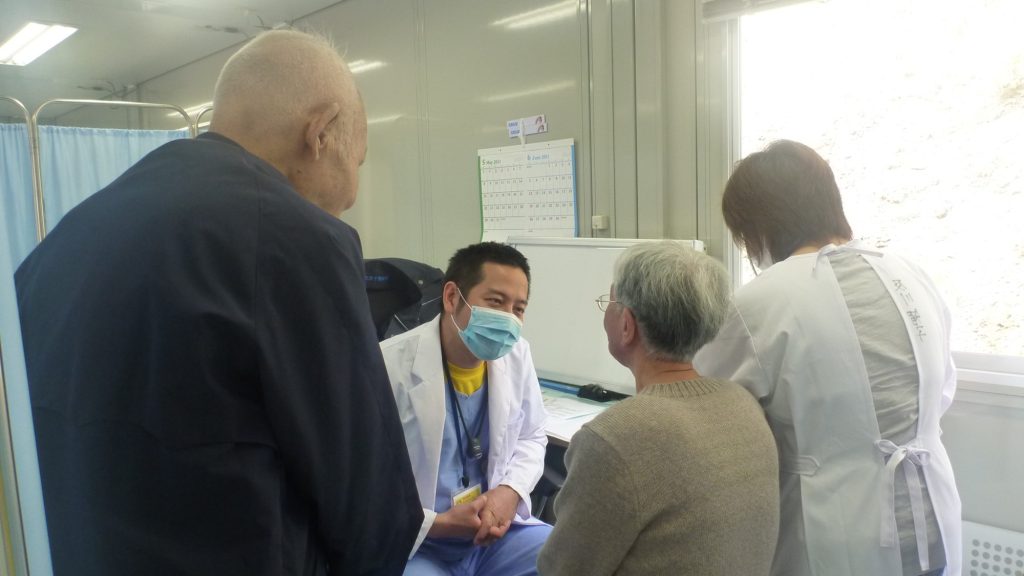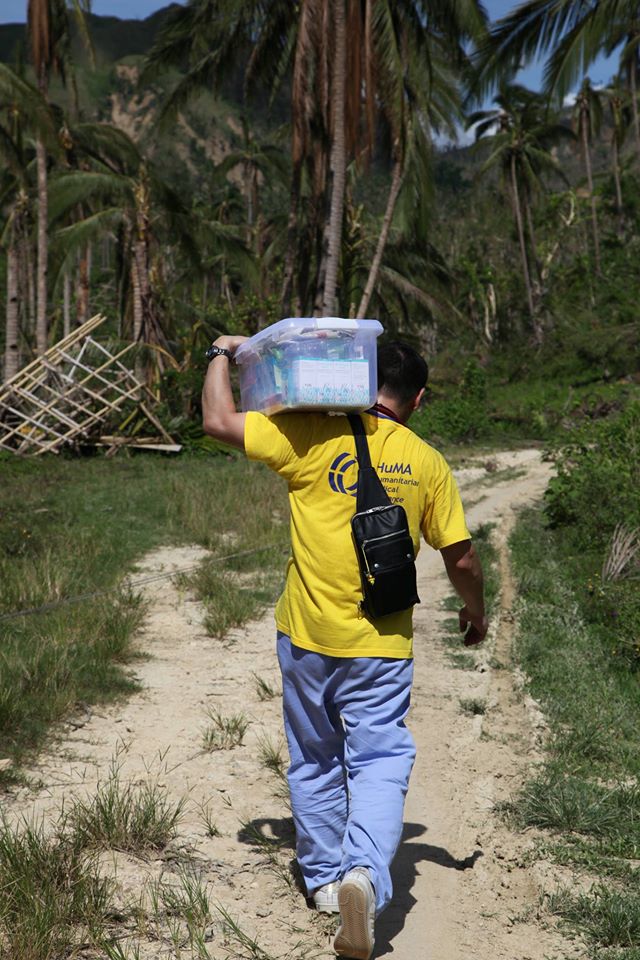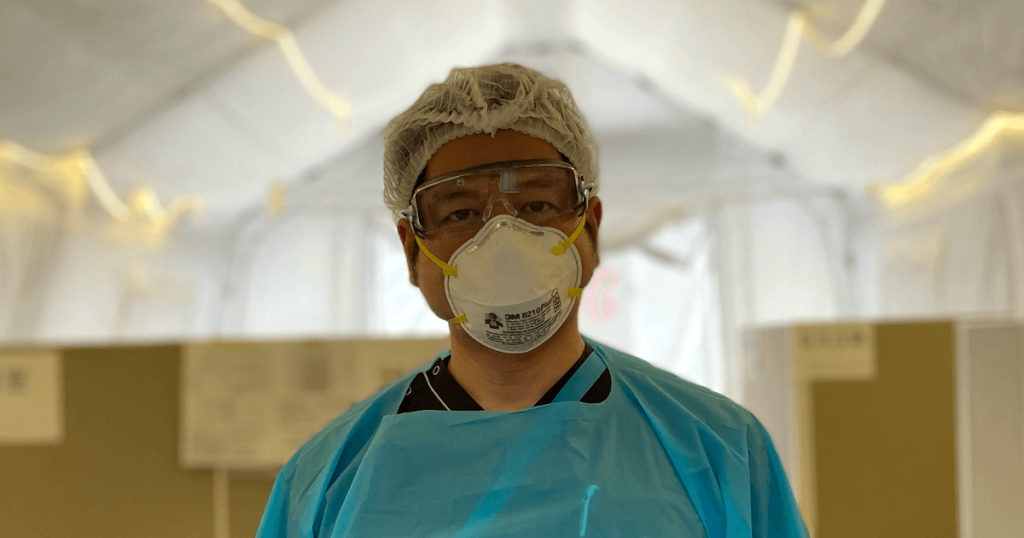| Tomoaki Natsukawa, MD, PhD (Department of Emergency and Intensive Care, Yodogawa Christian Hospital) The fifth interview is about Tomoaki Natsukawa, a doctor with a wide range of specialization including emergency and disaster medicine. As one of the members of HuMA providing assistance for over 10 years, Natsukawa san came to realize what is important to him. The starting point of the disaster assistance was Great East Japan Earthquake “I want to do something that I can do for the people in need in Northeast Japan.” In March 2011, while I was working at the hospital of Osaka Prefecture, I faced the severe damage from Great East Japan Earthquake broadcasted on the news and thought I need to take actions in any event. However, at that time, as the number of medical workers that could engage in public medical assistance was limited, doctors who could be assigned to the disaster area were just those extremely experienced in the hospitals. Being a doctor for only 7 years, I didn’t have the opportunity. Meanwhile, I found out about HuMA. I joined the team of HuMA and went to the site the next month after the occurrence of the disaster. The area we provided assistance was mainly Minamisanriku which was damaged seriously by the tsunami. The only general hospital in the area was swallowed by the tsunami up to level 4 and lost its function. We set up a temporary clinic in a safer location with an Israeli medical team to provide visiting medical care in shelter and for home-evacuee families. In Osaka, the place I live, life was as usual. However, in Minamisanriku, there wasn’t enough electricity nor water and weren’t enough toilets. In shelter, people lived their lives on ground sheets. Many suffered emotional scars because of bereavement of their families or loved ones. Moreover, the medical workers on site were getting exhausted. I was astonished by witnessing the reality personally and thought, “Is this really the same Japan where I live?” At the same time, I also felt strongly, “We must solve the series of difficulties in the disaster area.” |

Starting from the assistance for Great East Japan Earthquake victims, I have attended the assisting activities in disaster area domestically or overseas almost every year. Through the experiences, now the three important things to me are as below. Respect- respect the local life and medical standard We supporters are not heroes. We must not presume that “our approach is definitely correct.” For example, in Japan, receiving the best medical care is very natural. However, in other countries, receiving high-standard medical treatment might make families financially bankrupted. Also, in some areas, there isn’t a segmentation of “pediatrics”, and instead, children and adults’ treatments are conducted by the same doctor. There are various ways to live life or conduct medical care. Any of them stays alive in its local area. Hence, we definitely hear the opinions of the local medical workers, and provide assistance that we take their thoughts and ways of doing things into account accordingly. Resilience – in order for local people to recover self-sustaining daily lives Our assistance is absolutely for the sake of local people to recover the situation where they can live by themselves. Temporarily providing good care in a region without sufficient medical facilities is of no value if medical care cannot be continued after our assistance ends. The key is to attempt to revitalize the medical system which was devastated by disasters. When I started working on the assistance activities, I used to think, “We should do whatever we can.” However, I realized that excessive support ends up being unbeneficial to disaster-hit areas through my revisit to one of them for its follow-up project. As the need for acute-phase medical care right after disasters declines, here comes the timing when people become more aware of self-sustainment of disaster-hit areas. I consider that it is significant to choose the right time to start leaving our hands off them step by step. |

Relief – not only medical care but also measures to restore mind and body HuMA underscores the importance of the idea “providing necessary support for those in need.” If people lack water and have health troubles, we take measures to secure water. In this way, HuMA addresses not only physical but also daily life-based difficulties with an aim to ensure a situation where people can live in peace. It is regrettable that large disasters can claim many lives. Nevertheless, even if a life burns out in the end, I wish that there would be emotional salvation somehow. That is why we are committed to making our utmost efforts. Amid the coronavirus “disaster” In the current pandemic, it seems as if we are, so to speak, in a disaster-hit area. While facing the reality with myself as a party, now I better understand how medical workers felt in the disaster-hit areas to which I previously went for assistance activities. In particular, Osaka saw burgeoning COVID-19 cases during the 4th wave of the spring in 2021. Since overwhelmed healthcare systems pressed me to make difficult decisions, I sometimes confronted challenges where I almost reversed my belief as a doctor. It is such a time when one thought comes up to my mind, that is, “what if this patient were one of my family members.” Everyone is someone’s loved one and there is no difference in the gravity. There must be something we can do. The hope gently pushes me forward all the time. |

By Yuki Domoto
Translation by Mariko Hirata and Yuheng Yu
(PR volunteers)


